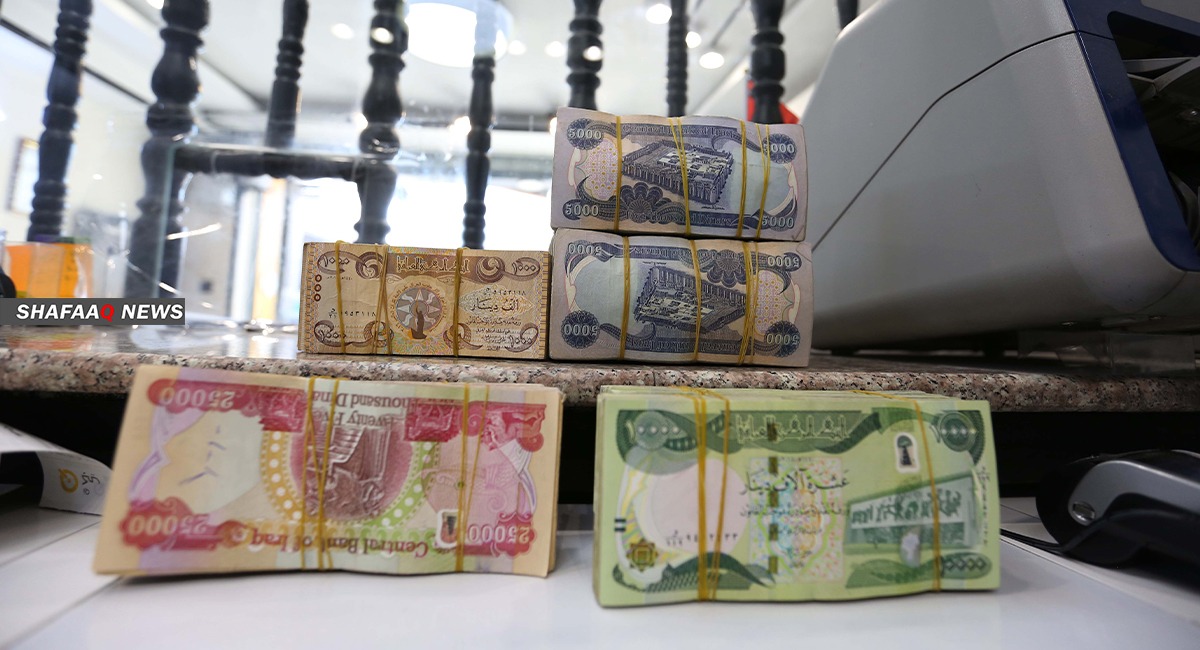Iraq’s financial revenues exceed 46 trillion dinars in five months.
 The Ministry of Finance revealed on Tuesday that Iraq’s federal budget revenues from January to May 2025 exceeded 46 trillion dinars, confirming that oil accounts for 91% of the budget.
The Ministry of Finance revealed on Tuesday that Iraq’s federal budget revenues from January to May 2025 exceeded 46 trillion dinars, confirming that oil accounts for 91% of the budget.
Shafaq News Agency followed up on the data and tables issued by the Ministry of Finance in June for the fiscal year’s accounts for the first five months of the current year. The data showed that oil remains the primary source of revenue for Iraq’s general budget, accounting for 91% of the total. This indicates that the rentier economy is the foundation of the country’s general budget.
The financial tables indicated that total revenues amounted to 46 trillion, 157 billion, 110 million, 408 thousand, and 761 dinars.
According to the tables, oil revenues amounted to 41 trillion, 930 billion, 805 million, and 332 thousand dinars, representing 91% of the general budget, while non-oil revenues amounted to 4 trillion, 226 billion, 305 million, and 75 thousand dinars.
She indicated that the total salaries of employees amounted to 27 trillion, 653 billion, 233 million, and 819 thousand dinars, while retirement salaries amounted to 7 trillion, 953 billion, and 199 million dinars, and social network salaries amounted to 2 trillion, 329 billion, 435 million, and 774 thousand dinars.
According to the budget, total expenditures for current expenses amounted to 43 trillion, 951 billion, 426 million, and 654 thousand dinars.
In March 2021, the Prime Minister’s financial advisor, Mazhar Mohammed Salih, told Shafaq News Agency that the reasons for the economy remaining rentier are due to the wars and economic blockade imposed on Iraq during the past era, as well as the political conflicts the country is currently witnessing, which have led to the dispersion of economic resources.
The Iraqi state’s continued reliance on oil as its sole source of public finances places it at risk from the global crises that occur from time to time, due to the impact of oil prices. This forces the country to each time resort to covering its deficit through external or domestic borrowing. This indicates an inability to manage state finances effectively and an inability to find alternative financing solutions.
Shafaq.com
